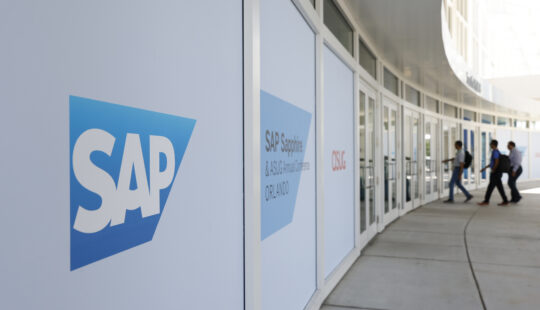 According to a BBC report from earlier today, even the frequency of use of the word ‘unprecedented’ is unprecedented at the moment. Google Trends picks up that the word has been used three times more over the last two weeks than the highest point recorded previously. This is testament to the fact that we are truly living in unusual times with no yardstick to measure how well we are coping. This poses challenges at both a professional and personal level.
According to a BBC report from earlier today, even the frequency of use of the word ‘unprecedented’ is unprecedented at the moment. Google Trends picks up that the word has been used three times more over the last two weeks than the highest point recorded previously. This is testament to the fact that we are truly living in unusual times with no yardstick to measure how well we are coping. This poses challenges at both a professional and personal level.
There is a running joke amongst colleagues and friends about how I was born in the wrong era. Despite being a 90s child exposed to computers and mobile phones before my 10th birthday, I find myself drawn to tradition and the ‘good old’ days of generations gone by. I cannot, for instance, find the same pleasure in reading from an e-reader as one would from physically turning the brown-tinged pages of an old novel. I suspect that I am not the only one from amongst my generation and beyond.
This takes me to the topic for today’s article: How e-signatures might be the answer to expediating business-as-usual. ‘Signature’ comes from the Medieval Latin word ‘signatura’ which literally means a ‘matrix of a seal’ or to ‘mark with a stamp, sign.’ uThink ‘Game of Thrones’ and the intricate seals that come to represent the Starks, Targaryens, and Lannisters. This alludes to the artistic heritage of signatures that somehow seems incompatible with digitalisation.
And yet, whilst tradition and culture have their place in society, so do evolution and modernity. Many economists have painted a bleak picture of what the next 6 to 12 months might hold for global financial markets. There is some comfort in acknowledging that the peak of the COVID crisis will pass and we will, once again, be thrown into the realities of business-as-usual. The speed at which business-as-usual will come about will be hugely dependant on how organisations have handled the crisis that we find ourselves in now. If there is complacency or indeed a complete shut-down now, it could take many months for the engines to warm up again and operations to continue as normal.
On the contrary, for proactive organisations that have put in place strategies to expedite the process of returning to business-as-usual, it should be a much simpler and quicker process. This is the role I see e-signatures playing in our current situation. Whilst we might prefer to sit in front or our business partners to sign a contract and seal the deal with round of handshakes, global lock-down makes this impossible. In which case, organisations can decide to pull the brakes on all planned initiatives until the COVID storm has passed, or more effectively, find new ways of getting their ducks ahead of time.
It should come as no surprise that whilst global markets have plunged since March this year, shares of companies such as Netflix and DocuSign continue to grow. Shares of digital document-signing specialist DocuSign (NASDAQ: DOCU) rose 7.1% in March, compared with a decline of 12.4% across the broader S&P 500 Index. Both Netflix and DocuSign have one key thing in common: They are built on the premise that individuals can have complete usability from the comfort of their homes. Whilst perhaps not ideal in some situations, these should be seen as practical tools which cannot be disregarded in our unprecedented situation.
Of course, there will be considerations such as how compatible e-signatures are with national and company policies or the availability of specific security features and audit trail. But once these considerations are addressed, even the traditional in me, can find no reason to not to leverage e-signature capabilities to expedite processes during a global slow-down.
There will come a time and a place for us to once again to relish in boardroom chatter, face-to-face contract signing and literal handshakes. But for now, let us get the wheels in motion for those times to come.
What initiatives has your company put in place to expedite business-as-usual?
Kunain Nurani (CIMA, MBA) is the Director: Value Advisory at SAP Africa



